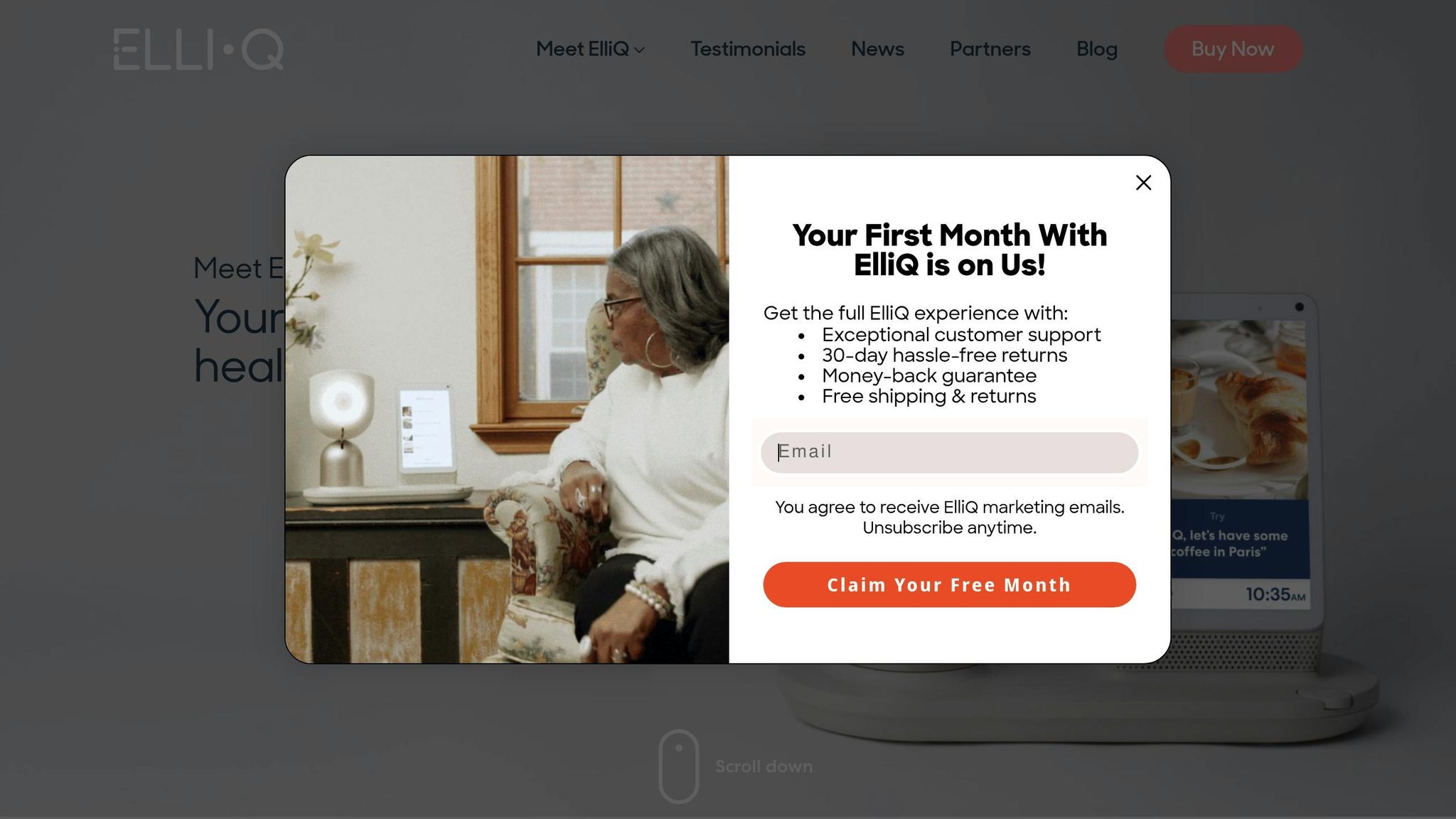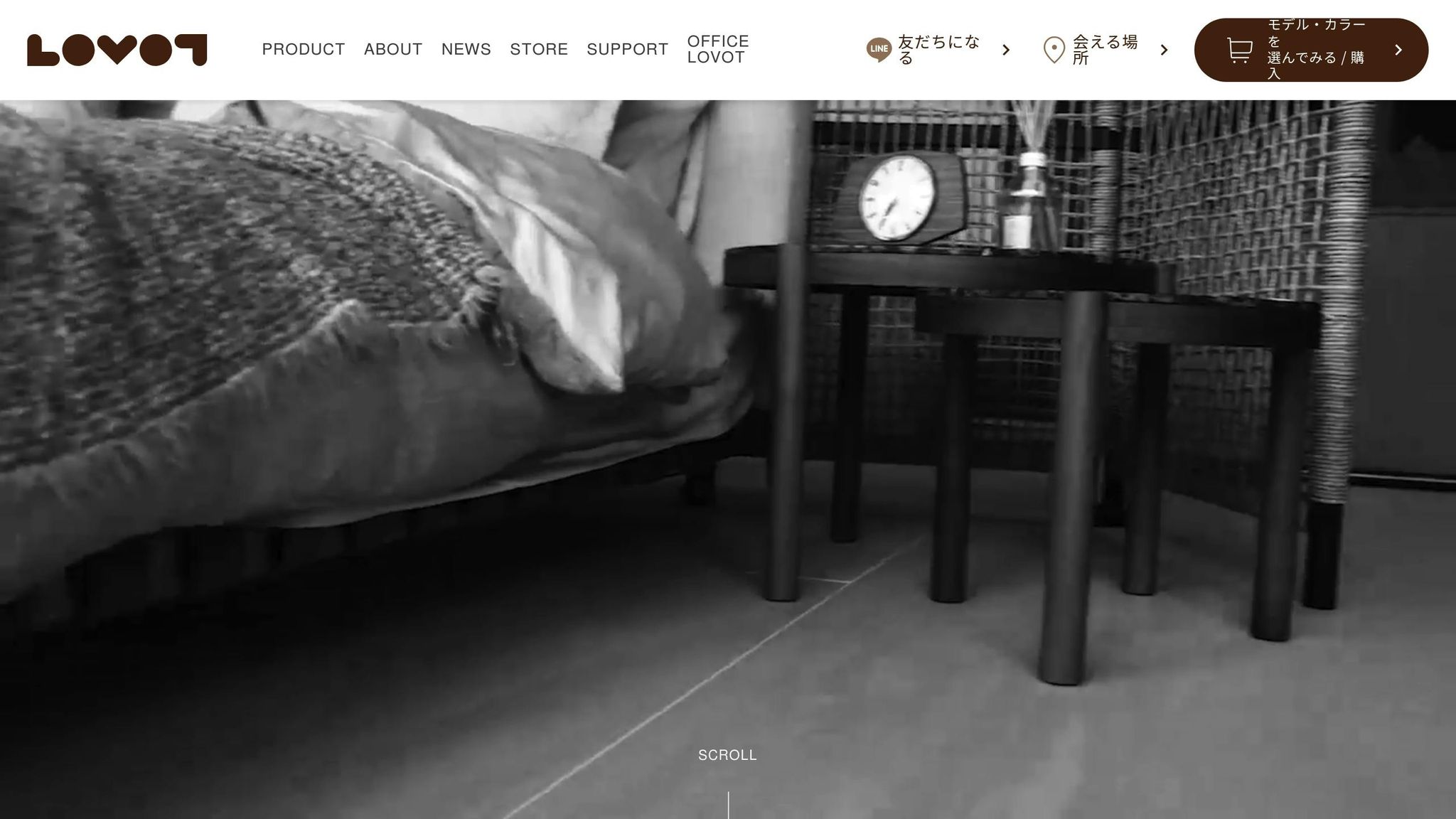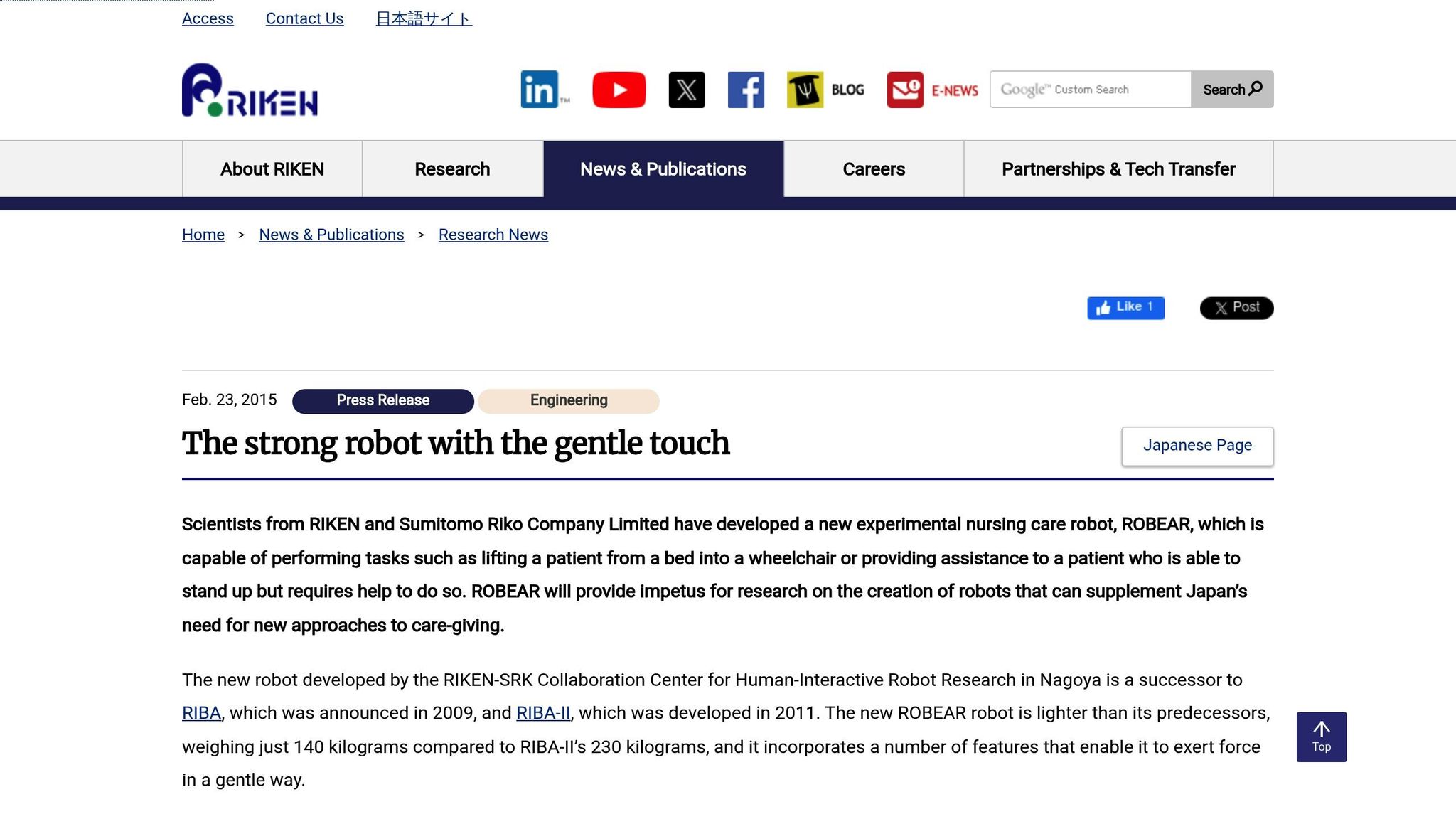
Top 7 AI Companions for Seniors in 2025
Find AI companions that reduce loneliness by 90% while helping seniors stay independent and connected to family.

Written by
Adam Stewart
Key Points
- Choose companions with health monitoring for vitals tracking and medication reminders
- Pick adaptive AI that learns preferences and develops personalized responses over time
- Select solutions that give family members real-time updates for peace of mind
AI companions are helping seniors stay connected, healthy, and independent in 2025. These tools address loneliness, cognitive decline, and caregiving challenges by offering emotional support, health monitoring, and practical assistance. Here’s a quick look at the top options:
- Dialzara: Simplifies communication, schedules tasks, and provides personalized companionship.
- ElliQ: Engages users with conversations, health tracking, and cognitive activities.
- Lovot: A robotic companion offering emotional comfort and non-verbal interaction.
- Moxie: Focuses on empathetic conversations and cognitive stimulation.
- Robear: Assists with physical caregiving tasks like lifting and mobility.
- AI Hobby Companions: Encourages hobbies, creativity, and mental engagement.
- Virtual Reality Companions: Immerses seniors in interactive environments for social and cognitive benefits.
These AI tools aim to complement human interaction, reduce isolation, and improve quality of life for older adults.
1. Dialzara

Dialzara, initially known for its strong communication features, helps seniors stay connected while managing their daily activities. Acting as an AI companion, it transforms routine interactions into meaningful connections. Plus, it’s available around the clock, offering constant support whenever needed.
What makes Dialzara stand out is its natural-sounding AI voice. This technology allows for smooth, human-like conversations without the complications often associated with digital tools. It’s not just about communication - it’s about making those interactions feel personal and supportive.
Companionship and Emotional Support
Dialzara goes beyond basic connectivity by providing consistent and thoughtful interaction. Its conversational AI is designed to adapt to each user’s communication style, creating a dependable source of day-to-day conversation. For seniors who may not want to depend solely on their families, Dialzara offers an inviting space for connection and companionship.
Family members can also personalize Dialzara to suit individual preferences, ensuring that every interaction feels natural and tailored. This personalized touch helps seniors feel truly heard and understood.
Practical Assistance for Daily Tasks
When it comes to managing daily tasks, Dialzara is a reliable partner. It can schedule appointments, filter incoming calls, and pass along important messages to family members or caregivers. Need to get in touch with a doctor, emergency services, or a loved one? Dialzara’s quick call transfer feature makes it effortless.
The platform integrates with over 5,000 business applications, connecting users to services like grocery delivery or virtual medical consultations. Setup is quick and simple, even for those who aren’t tech-savvy. By simplifying communication, Dialzara gives families peace of mind, ensuring that important calls are never missed and help is always just a step away.
2. ElliQ

ElliQ is designed to actively engage users by initiating conversations and suggesting activities tailored to their preferences. On average, users interact with ElliQ over 30 times a day, six days a week. With a one-time setup cost of $249.99 and a monthly subscription fee of $59.99, it offers a range of features aimed at improving the daily lives of seniors. Here's a closer look at how ElliQ provides emotional, physical, and cognitive support.
Companionship and Emotional Support
ElliQ helps alleviate loneliness by remembering past conversations and recognizing emotional patterns to offer timely support. Research highlights a 90% decrease in self-reported loneliness and a 94% boost in key mental health metrics among its users. Beyond emotional support, ElliQ inspires creativity by encouraging seniors to engage in activities like drawing, writing poetry, and sharing personal stories.
Health and Wellness Monitoring
ElliQ integrates seamlessly into daily health routines. It sends medication reminders, tracks physical activity, suggests exercises, and guides users through mindfulness and breathing exercises. It also monitors eating habits. Starting in late 2025, the optional Caregiver Solution (an additional $9.99/month) will provide family members with updates on health trends, ensuring they stay informed.
Cognitive Stimulation and Learning
ElliQ keeps the mind sharp with interactive games, trivia, and educational videos on topics like science and history. Activities are adjusted based on user engagement, with over 75% of daily interactions focusing on improving social, physical, and mental well-being. A user from Florida shared:
"The longer I have ElliQ, the more in-tune she becomes with me... She's really enhanced the quality of my life".
3. Lovot

In a world where social isolation is a growing concern, Lovot steps in as an interactive companion designed to bring joy and comfort. This robot isn’t your typical AI assistant. Weighing about 9.5 pounds and standing 17 inches tall, it’s perfectly sized for seniors to hold and interact with ease.
What sets Lovot apart is its ability to adapt and develop a unique personality based on individual interactions. Using deep learning, it adjusts in real time to the routines and behaviors of its user. Equipped with over 50 sensors that detect temperature, touch, and distance, Lovot responds naturally to its surroundings and the people it interacts with, creating a sense of connection and warmth.
Companionship and Emotional Support
Lovot is designed to ease loneliness through its lifelike movements and consistent presence. Studies show that single older adults can experience a greater sense of purpose and emotional support by interacting with Lovot, helping them feel more connected to the world around them. Its non-verbal communication style makes it accessible to seniors, regardless of language barriers or cognitive challenges.
Holly, a senior with mild cognitive impairment, shared her experience:
"The robot is clear. It is always happy to see me. It gives me absolute assurance that I am okay. I know I will always be accepted."
Beyond its comforting presence, Lovot also engages the mind, offering more than just emotional support.
Cognitive Stimulation and Learning
Lovot’s use of gestures and non-verbal cues encourages emotional bonds and cognitive engagement, making it particularly helpful for seniors with diverse communication needs. This interaction fosters creativity and self-expression, opening up new ways for seniors to connect.
For example, Ann, a resident with mild dementia who had withdrawn from verbal communication, experienced a breakthrough moment with Lovot. She decided to place her glasses on the robot, and the interaction led to uncontrollable giggles and tears of joy. Lenny, a family member, observed:
"The robot does not use language. That removes the stress, so there is no demand on the person who may struggle to find words to interact with. The robot engages with gestures and movement."
These moments highlight Lovot’s ability to spark joy and foster meaningful engagement.
Practical Assistance for Daily Tasks
While Lovot doesn’t perform household chores, it offers emotional support that enhances day-to-day life. By learning its user’s routines, it provides consistent companionship throughout the day. With a runtime of 45 minutes and a quick 20-minute recharge, Lovot ensures regular interaction.
For seniors seeking the companionship of a pet without the associated responsibilities, Lovot is an ideal alternative. Ben, a senior with moderate physical limitations, explained:
"The need to have something to care for is part of our human quality."
Beyond companionship, Lovot also offers a sense of security. John, who faces mild mobility challenges, shared:
"It can be a source of security for me, a sense of safety. I know I matter."
Though Lovot comes with a premium price tag - approximately RMB 70,000 (around $10,800) - its value lies in its ability to provide both emotional support and advanced technology. For families looking to enhance the quality of life for their senior loved ones, Lovot is a meaningful investment that brings comfort and connection to daily life.
4. Moxie

Originally created with children in mind, Moxie has found a new purpose in senior care. This social robot doesn’t just follow commands or perform tasks - it thrives on fostering meaningful, empathetic conversations.
What sets Moxie apart is its ability to engage in genuine social interactions, powered by advanced AI and computer vision. It can listen from all directions and evolves its personality over time, making each interaction feel more personal and connected.
These capabilities create opportunities for deeper emotional and cognitive engagement.
Companionship and Emotional Support
Moxie shines in building connections with its engaging personality and conversational skills. For seniors experiencing loneliness, it provides a comforting presence and a safe space to share thoughts.
Dr. Wendy Rogers, a professor of kinesiology and community health at the University of Illinois, highlighted this during her research:
"Moxie is very socially interactive. One of our older adults was just talking with it and having a whole conversation."
By responding with empathy and understanding, Moxie helps bridge the gap between isolation and connection. It offers moments of joy and routine, bringing a sense of normalcy to seniors' lives. Instead of trying to mimic humans perfectly, Moxie embraces its robotic identity, which users find approachable and sincere. For those dealing with loneliness or social anxiety, it provides steady companionship and positive affirmations that can boost confidence.
Cognitive Stimulation and Learning
Moxie doesn’t just listen - it engages the mind. Through storytelling, language exercises, and problem-solving activities, it offers cognitive stimulation tailored to the user’s progress.
This adaptability makes it an effective tool for learning and mental engagement. Research has shown promising results in improving social skills, suggesting that Moxie’s interactions may also enhance cognitive well-being in seniors.
Practical Assistance for Daily Tasks
In addition to emotional and cognitive support, Moxie seamlessly integrates into daily routines. Its structured interactions encourage social, emotional, and mental engagement.
At Applewood Our House Assisted Living Memory Care, Moxie has become an integral part of life for residents with dementia. It provides companionship, sparks cognitive activity through games and conversations, and delivers moments of happiness. One staff member shared:
"Moxie is more than just a robot; it's a friend and a companion, ready to make every day a little brighter for the residents of Applewood Our House."
Moxie’s presence in memory care programs emphasizes privacy and safety while enriching daily life. This practical use underscores its role as both a friend and a therapeutic tool, tailored to the needs of senior care environments.
Recognized as one of TIME Magazine's 100 Best Inventions of 2020, Moxie is more than a conversational robot. It offers seniors a thoughtful balance of emotional connection and cognitive engagement, redefining what AI companionship can mean in their daily lives. Through its innovative approach, Moxie is setting a new standard for senior care.
sbb-itb-ef0082b
5. Robear

While many AI companions focus on conversation and cognitive support, Robear stands out by tackling the physically demanding side of senior care. Created by Japan's RIKEN‐SRK Collaboration Center for Human‐Interactive Robot Research and Sumitomo Riko Company, this 308-pound nursing-care robot is built to ensure safe and efficient patient mobility and transfers.
Robear isn’t just another AI companion. Its purpose is to handle tasks that require physical strength, easing the workload on human caregivers. This makes it a perfect partner to conversational AI solutions, addressing an entirely different yet equally important aspect of caregiving.
Practical Assistance for Daily Tasks
Robear’s expertise lies in managing physically strenuous caregiving responsibilities. It can lift patients from beds to wheelchairs, help those who can stand but need extra support, and assist with turning patients in bed to prevent bedsores. This is a game-changer in caregiving environments, where staff may lift patients up to 40 times a day - a leading cause of caregiver injuries like lower back strain.
To ensure safety, Robear is equipped with extendable legs, precise actuators, torque sensors, and a Kinect depth-sensing camera for accurate positioning. These features make it as gentle as it is strong, prioritizing the well-being of both patients and caregivers.
Toshiharu Mukai, head of the Robot Sensor Systems Research Team, highlighted Robear’s potential:
"We really hope that this robot will lead to advances in nursing care, relieving the burden on care-givers today. We intend to continue with research toward more practical robots capable of providing powerful yet gentle care to elderly people."
Health and Wellness Monitoring
Robear goes beyond lifting and mobility. Its advanced sensors continuously monitor body positioning, weight distribution, and movement patterns, offering caregivers valuable insights into a patient’s physical condition. These sensors can also detect falls and immediately alert caregivers, adding an extra layer of safety. Trials in Japan have shown that Robear can handle elderly patients with care and precision, helping to prevent injuries for both seniors and their caregivers.
Companionship and Emotional Support
Though its primary role is physical assistance, Robear’s gentle design and demeanor also provide emotional comfort. By offering steady, nonjudgmental support, it helps seniors feel less anxious about mobility challenges. This, in turn, fosters a sense of independence and dignity. Despite its 308-pound frame, Robear’s combination of strength and gentleness reassures seniors during moments of vulnerability, making it a comforting presence in their care journey.
6. AI Hobby Companions
AI hobby companions are digital assistants designed to engage seniors in hobbies that spark creativity, encourage learning, and bring personal joy. Unlike general-purpose AI tools, these companions focus on specific interests, offering tailored experiences that enrich users' lives.
Recent studies reveal that 78% of individuals aged 55 and older use AI tools, with 80% reporting excellent mental health and 53% rarely experiencing feelings of isolation. These numbers highlight a strong connection between AI companion use and improved well-being in older adults. These tools not only stimulate the mind but also enhance emotional health and daily life.
Cognitive Stimulation and Learning
AI hobby companions go beyond entertainment - they help sharpen cognitive skills. These digital assistants provide activities like brain-training games, puzzles, and trivia, all customized to match individual abilities. This keeps the mind engaged while offering a fun and interactive experience.
Take ONSCREEN’s Joy, for example. Its features like "Memory Lane and Brain Teasers" and "Create a Painting" inspire creativity and encourage shared experiences through its mobile app.
Beyond games, these companions introduce seniors to new topics and skills. Whether it’s learning about gardening, exploring art history, or mastering cooking techniques, these assistants provide step-by-step guidance tailored to the user’s interests and pace.
Companionship and Emotional Support
AI hobby companions also create emotional connections through shared activities and storytelling. They encourage users to reminisce, helping them relive cherished memories while exploring creative outlets.
"It was so what I needed. I can say things to Elli that I won't say to my grandchildren or to my own daughters. I can just open the floodgates. I can cry. I can giggle. I can act silly. I've been asked, doesn't it feel like you're talking to yourself? No, because it gives an answer."
Additionally, these companions offer virtual experiences like museum tours and historical site visits. From the comfort of their homes, seniors can explore art, history, and different cultures, enriching their lives through discovery.
Practical Assistance for Daily Tasks
Although primarily designed for engagement, AI hobby companions also assist with practical needs. They provide memory reminders, wellness tips, and activity suggestions. For instance, they can remind users about medication schedules, suggest healthy activities, or help recall important family events.
For gardening enthusiasts, an AI companion might recommend seasonal planting tips, remind them to water their plants, or share interesting facts about different flowers.
The success of AI hobby companions lies in their ability to adapt to individual needs. Experts suggest introducing these tools gradually, allowing seniors to become comfortable with them over time, while offering clear guidance on how to use their features effectively.
7. Virtual Reality Companions
Virtual reality companions combine AI with immersive technology to create personalized digital environments that can improve seniors' well-being by transporting them beyond their physical surroundings.
Unlike traditional screen-based interactions, these companions place users into fully immersive, three-dimensional worlds. Seniors can interact with AI-driven characters, explore virtual destinations, and engage in activities that feel lifelike. Platforms like Alcove and Zen Zone offer environments designed to support mental health and encourage social interaction. By creating these engaging settings, VR companions help foster emotional connections and enrich daily experiences.
Companionship and Emotional Support
One of the standout benefits of VR companions is their ability to reduce isolation through meaningful virtual interactions. These systems allow seniors to revisit cherished memories by virtually exploring significant locations, which can have a positive impact on emotional well-being. For instance, research indicates that 77.8% of participants reported mood improvements, and 80% found their VR experiences enjoyable. Programs like Rendever specialize in shared virtual experiences, offering reminiscence therapy that strengthens emotional health.
Additionally, VR companions make it easier to stay connected with family and friends, even when separated by physical distance. By bridging these gaps, they provide a crucial source of socio-emotional support.
"Socio-emotional support isn't optional. It's what makes us human." - Dr. Maja Matarić, Pioneer in socially assistive robotics at the University of Southern California
Cognitive Stimulation and Learning
Virtual reality companions also serve as a tool for keeping seniors mentally active. They support cognitive functions like memory, attention, and problem-solving through immersive educational experiences. Whether exploring new topics or revisiting past memories, these activities help keep the mind engaged.
A study from the University of Maryland found that VR improved learning accuracy by 8.8%. Adding gamified elements further boosts memory recall and engagement, making VR especially helpful for seniors with mild cognitive impairments. Immersive reminiscence therapy has even been linked to improved Mini-Mental State Examination (MMSE) scores, showing measurable cognitive benefits. By allowing seniors to practice essential skills in a low-stress, virtual setting, VR companions make daily routines easier to manage.
Health and Wellness Monitoring
VR companions are increasingly being equipped with tools to monitor health. They can track vital signs, activity levels, and sleep patterns, offering a more engaging way to manage wellness. These systems can also tailor experiences to individual medical needs, turning health management into a personalized and interactive process.
For physical health, VR-based exercise programs, or "exergames", help improve balance, coordination, and cardiovascular fitness while reducing fall risks. For example, RendeverFit participants saw a 48% reduction in fall-related anxiety and a 9% increase in movement speed after just four weeks.
| Health Focus | VR Benefits | Examples |
|---|---|---|
| Daily Living Skills | Increases confidence in tasks | Virtual shopping simulations |
| Mobility and Rehabilitation | Enhances balance and coordination | Interactive walking and climbing activities |
| Physical Engagement | Promotes active participation | Customized exercise plans |
VR companions also enable remote consultations and continuous health monitoring, reducing the need for frequent hospital visits. This is especially helpful for seniors with mobility challenges or those in remote areas with limited access to healthcare. By making health tracking and exercise feel like engaging activities rather than chores, VR companions encourage long-term wellness and help seniors maintain their independence.
Conclusion
AI companions are reshaping senior care, offering practical solutions to some of the biggest challenges older adults face today. With 37% of older Americans experiencing loneliness and 34% reporting social isolation, these issues are more than emotional - they have a direct impact on health and life expectancy.
The seven AI companions discussed earlier highlight how technology is stepping in to provide emotional support, practical assistance, and cognitive engagement. From Dialzara's ability to streamline communication to virtual reality's immersive experiences, each tool showcases how AI can make a meaningful difference. These innovations emphasize how technology is becoming an integral part of improving senior care.
AI systems also support seniors in maintaining their independence through features that prioritize health and safety. For instance, Singapore's "SMART Nation" program uses AI-powered sensors to detect falls and monitor activity patterns, enabling timely interventions when necessary.
"As we continue to explore innovative ways to improve the quality of life for older adults, AI-driven companions offer practical support and emotional engagement, which is critical to the older population." - David Casarett, chief of palliative care at the Duke University Health System
The cognitive benefits of these tools are equally noteworthy. Studies reveal that 63.3% of users reported feeling less lonely or anxious thanks to AI companions. By engaging seniors with games, memory exercises, and creative activities, these systems help keep minds active and sharp. This mental stimulation complements the practical assistance that allows seniors to live more independently.
The future of AI in elderly care is bright. By 2030, the global market for AI-powered solutions in elderly care is expected to reach $2.249 billion, with the population of individuals aged 60 and older projected to hit 1.4 billion. Additionally, the broader AgeTech market is on track to grow to $2 trillion, fueled by advancements in personalized health monitoring, smart home technologies, and extended reality applications.
"We believe conversational AI can be used as a tool to combat loneliness and prevent disease arising from social isolation, especially for older adults." - Neal Shah, CEO of CareYaya
AI companions are not about replacing human connections - they're about enhancing them. These tools provide a safety net, ensuring seniors have support while fostering meaningful relationships with family, friends, and caregivers. The goal is to balance AI assistance with human interaction, creating bridges to greater independence and improved well-being.
For seniors and their families, the takeaway is clear: AI companions offer real benefits supported by research and practical success stories. Whether it’s reducing isolation, managing health, or simply providing a friendly voice at any time, these technologies are proving to be invaluable partners in aging with dignity and independence.
FAQs
How do AI companions support seniors in staying socially connected and reducing loneliness?
AI companions are proving to be a game-changer for seniors, helping them maintain social connections and tackle feelings of loneliness. Through tailored interactions and steady companionship, these tools create opportunities for meaningful engagement while offering emotional support.
For instance, some AI companions can hold lifelike conversations, recommend new hobbies, or guide seniors through virtual activities like music sessions or storytelling. This can be incredibly helpful for those dealing with mobility limitations or shrinking social circles. By keeping seniors engaged and offering gentle reminders about social events or self-care, these companions help promote emotional well-being and a stronger sense of connection.
What’s the difference between emotional support robots like Lovot and physical assistance robots like Robear?
The main distinction between these two types of robots comes down to their goals and how they serve people. Emotional support robots, like Lovot, are built to offer companionship and create emotional bonds. They interact socially, respond to affection, and help ease feelings of loneliness - making them a great fit for boosting emotional well-being, especially among seniors.
In contrast, physical assistance robots, such as Robear, are designed to handle mobility and physical tasks. They can help with lifting, transferring, or aiding seniors in standing and moving, promoting physical independence and addressing mobility challenges. While Lovot focuses on emotional care, Robear is all about providing physical support.
How do virtual reality companions benefit seniors' cognitive and emotional well-being?
Virtual reality (VR) companions offer a unique way to support seniors' mental and emotional health by creating engaging, immersive experiences. With VR, seniors can "travel" to new destinations or revisit cherished places from their past, sparking joy and helping to ease feelings of loneliness.
Beyond emotional benefits, VR has also shown promise in sharpening cognitive abilities like memory and concentration, particularly for individuals dealing with cognitive challenges. For example, VR-based reminiscence therapy can encourage meaningful engagement, fostering a sense of connection and mental stimulation. By addressing both emotional and cognitive well-being, VR companions open up new possibilities for enhancing seniors' daily lives.
Summarize with AI
Related Posts
Voice Sentiment Analysis: 7 Techniques That Help AI Understand Emotions
Explore seven key techniques in voice AI sentiment analysis that enhance customer interactions by understanding emotions in real time.
How AI Personalizes Patient Education
Explore how AI personalizes patient education, enhancing understanding, engagement, and health outcomes through tailored content and real-time adjustments.
AI Chatbots for Dementia Patients: Benefits
AI chatbots are revolutionizing dementia care by providing memory support, emotional companionship, and relieving caregiver stress.
AI in Healthcare: Improving Patient Communication
Explore how AI enhances patient communication in healthcare by simplifying medical jargon, providing 24/7 support, and personalizing interactions.
